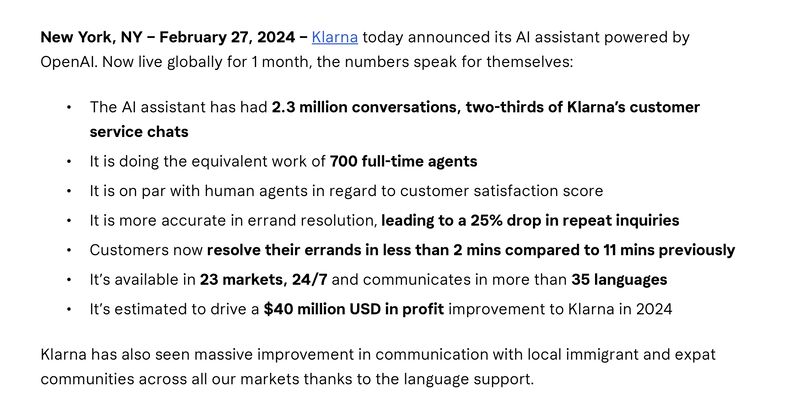Klarna’s AI ROI: it is doing the work of 700 full time agents and resolving issues in under 2 minutes compared to legacy 11 minutes resolution time.
Right on the heels of yesterday’s post about the ROI of AI comes this data drop from Klarna, a leading Swedish Fintech startup.
+ Klarna’s AI assistant now resolves two-thirds of all customer service chats, which translates to handling 2.3 million conversations.
+ This level of automation equates to the workload of 700 full-time employees.
+ Klarna anticipates an enhancement to its profits by $40 million in 2024 due to the efficiencies brought by its AI implementations. This shows that AI investments are creating not only operational efficiency but also a significant driver of financial outcomes.
+ Klarna’s ability to engage in 35 languages around the clock marks a significant step towards both scaling operations and reaching a diverse customer base more effectively.
It is clear that the discourse around AI adoption in customer service must now pivot to ROI considerations, and workforce transformation.
It’s crucial for businesses to understand not just the operational benefits of AI, but also its broader impact on the company’s financial health and employee dynamics.
What are your thoughts on Klarna’s ROI on AI investments?
#ArtificialIntelligence #CustomerExperience #OperationalEfficiency #Fintech #ROI #WorkforceTransformation #ProfessionalDevelopment #EthicalAI #Klarna #OpenAI

